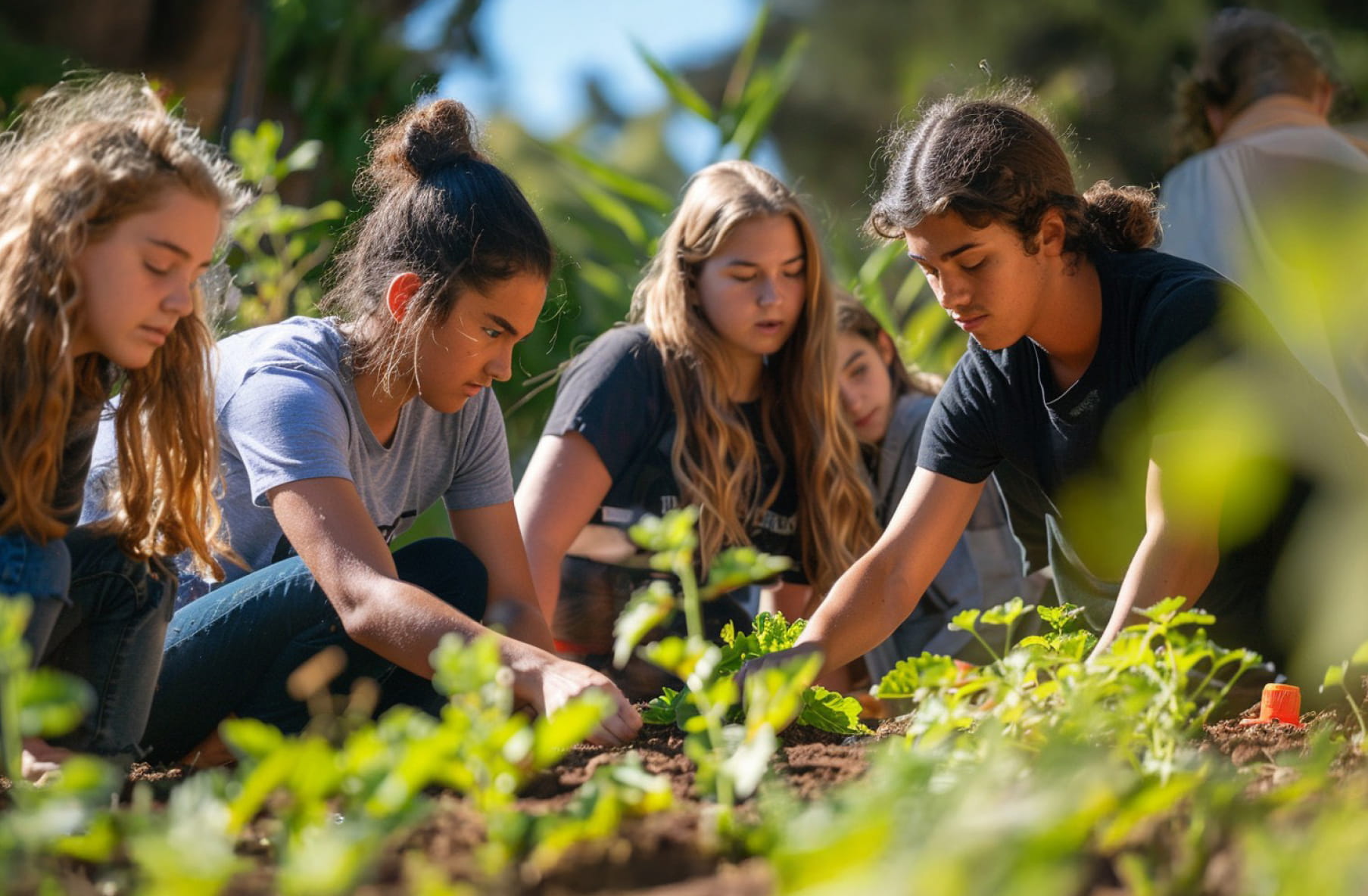Youth Driving Sustainability Globally
As climate challenges continue to rise, it is the bold and innovative minds of the next generation that are stepping up to create impactful solutions. Across the Middle East, North Africa, Europe and Central Asia, students are implementing forward-thinking sustainability projects that address critical environmental needs while benefiting their local communities.
In this feature, we highlight three remarkable finalists from the 2025 Global High Schools category. Their projects showcase how young leaders are using resourcefulness and creativity to shape a more sustainable future for their regions.
Middle East & North Africa Finalists
Benlarech School in Morocco aims to create a “Sustainable Oasis” project that will transform the school into a model of sustainability. By integrating solar panels, a recycling center, and an aquaponics system, the school will address energy consumption, waste management, and water conservation. Additionally, they plan to promote healthy living through nutrition classes and mental health gardens. The project seeks to foster a sustainable culture within the school and the surrounding Djelfa community.
Merryland International School in the United Arab Emirates has proposed a project that focuses on air quality by using carbon sponge bricks made from algae to absorb CO2 and release oxygen. This innovative solution aims to reduce the harmful effects of elevated CO2 levels in classrooms, which can affect health and productivity. Their goal is to install these bricks in classrooms, improving air quality for over 3,000 students and staff, and to inspire the wider community to adopt sustainable practices.
Obour STEM School in Egypt has developed a project that addresses water scarcity and poor soil conditions in rural farming communities. The students developed a bio-based hydrogel that improves soil water retention and reduces irrigation needs by 50%. This innovative solution helps farmers increase crop yields while conserving water and lowering costs. The project also includes educating local farmers on sustainable agriculture, benefiting over 1,500 people in the community and strengthening local food security.
Europe & Central Asia Finalists
Baku Modern School in Azerbaijan plans to implement a project that combines a solar powered microgrid with a smart water management system to support remote communities. By providing reliable renewable energy and improving water conservation, the school aims to address energy scarcity and water shortages in underserved areas. This hands-on project not only equips students with practical STEM skills but also fosters a commitment to sustainability. Through their involvement, students will contribute to a healthier environment and help inspire sustainable practices in the wider community.
TEV Inanc Turkes High School (TEVITOL) in Türkiye has proposed an innovative project focused on biodegradable plastics. Their “Future of Plastics” initiative will involve students in researching and developing biodegradable alternatives to conventional plastics, aiming to reduce plastic waste’s harmful environmental impact. Additionally, they plan to deploy solar-powered robots to clean up microplastics, contributing to healthier ecosystems. This hands-on project will empower students to tackle pollution while raising community awareness about sustainable practices.
Presidential School in Uzbekistan plans to address water scarcity by installing rainwater collection and filtration systems in 150 schools. Using green sand filters and Granular Activated Carbon, the project will provide clean drinking water to 45,000 people in the Kashkadarya region. This sustainable system is designed to last for decades, ensuring long-term benefits for local communities while promoting environmental awareness through eco-committees.
These remarkable schools exemplify the Prize’s mission to empower young people with the tools and resources to lead their schools toward a sustainable future and to spark real, tangible change in their communities.
On 14 January 2025, the winners will be announced. Stay tuned to see which school projects take home the Prize.
.svg?iar=0&hash=670E3638BC16C0DD69B262DD1184DEA8)

